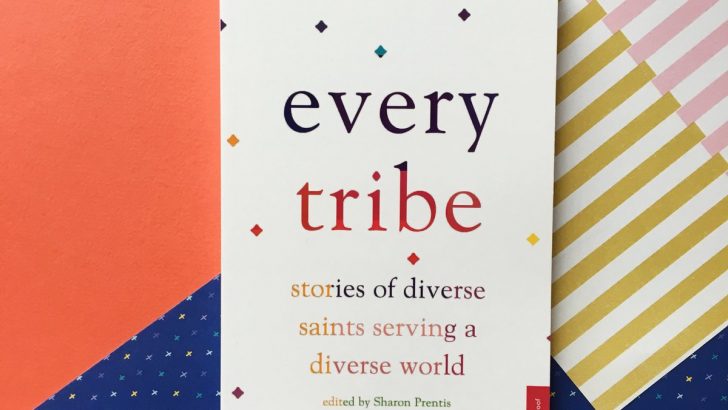Every Tribe: Stories of diverse saints serving a diverse world
edited by Sharon Prentis (SPCK, £9.99)
Myles na Gopaleen, in one of his contrary moods, used to wonder about whether the great Augustine was in life a black African (though he used words to that effect that cannot now be used).
The saint was certainly born in Numidia, which is not quite the same thing as saying he was born in Algeria. Hippo, of which he was bishop, is also in Algeria, but the ancient people there were of Punic stock from Phoenicia in the Levant. We cannot really indentify people of the past by present day political boundaries (which have proved to be disconcertingly variable over the last couple of centuries).
St George, too, the pre-eminent saint of England, was introduced into England at the time of Crusades. He is said here to have had a Turkish father and a Palestinian mother. Well, the mother is right, but there were no Turks in what is now called Turkey until the 11th Century
Today we all have to try to forget about labels of any kind, and accept people and saints for what they are in themselves. This is really the message which editor Sharon Prentis is trying to give people. She has to use language that is of our moment to make her meaning plainer, but at the heart of Christianity there has to be diversity.
The book contains some 12 short accounts of some very remarkable people from India, Africa, Oceania, South America and elsewhere. Some will be very familiar such as St Martin de Porres, to whom there has long been a devotion here in Ireland. But the name of blessed Marie-Clementine Anuarite, from what is now the Congo, formerly Zaire, formerly the Belgian Congo may not be as well known. Her martyrdom reflects the turmoil that has faced many African nations and States.
She was killed by a rebel leader who wished to marry her, but he lived to repent and to be forgiven by her family and by the Pope at the time of her beatification. But other saints here belong to the Anglican and other traditions. Their stories are related by contributors almost as remarkable as the people they write about.
In this country everyone should know more about Blessed Ceferino Giminez Malla (1861-1936), so far the one and only Gitano saint, he was murdered by a Republican firing squad during the Spanish civil war for aiding priests.
But this is not a mere selection of biographies. The preface, introduction and the reflections which the lives and witness of these people gives raise to makes this into something more akin to a devotional manual.
Many will be moved and informed by this little book, which one hopes will be widely read thoughts the Christian communities of the world, reminds us as it does that diversity can be informed also by special kinds of devotion.
Let us forget the boundaries and the labels of the past, and honour people of exemplary moral stature wherever we find them.


 Peter Costello
Peter Costello